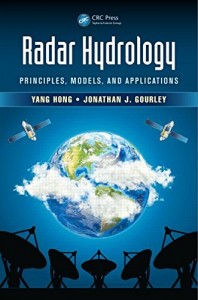 Published: December 23, 2014 by CRC Press
Published: December 23, 2014 by CRC Press
Radar Hydrology: Principles, Models, and Applications provides graduate students, operational forecasters, and researchers with a theoretical framework and practical knowledge of radar precipitation estimation. The only text on the market solely devoted to radar hydrology, this comprehensive reference:
- Begins with a brief introduction to radar
- Focuses on the processing of radar data to arrive at accurate estimates of rainfall
- Addresses advanced radar sensing principles and applications
- Covers radar technologies for observing each component of the hydrologic cycle
- Examines state-of-the-art hydrologic models and their inputs, parameters, state variables, calibration procedures, and outputs
- Discusses contemporary approaches in data assimilation
- Concludes with methods, case studies, and prediction system design
- Includes downloadable MATLAB® content
Flooding is the #1 weather-related natural disaster worldwide. Radar Hydrology: Principles, Models, and Applications aids in understanding the physical systems and detection tools, as well as designing prediction systems.
Editorial Reviews
“This is the first book on radar hydrology written by hydrologists. Whereas the excellent knowledge of radar technology by the authors permits an adequate coverage of the principles of rainfall rate estimation by radar, their hydrological background allows them to provide a unique message on the benefits (and on the remaining challenges) in exploiting radar techniques in hydrology. … In a clear and concise manner, the book combines topics from different scientific disciplines into a unified approach aiming to guide the reader through the requirements, strengths, and pitfalls of the application of radar technology in hydrology—mostly for flood prediction. Chapters include excellent discussion of theory, data analysis, and applications, along with several cross references for further review and useful conclusions.”
